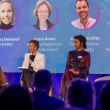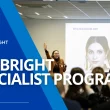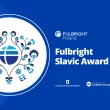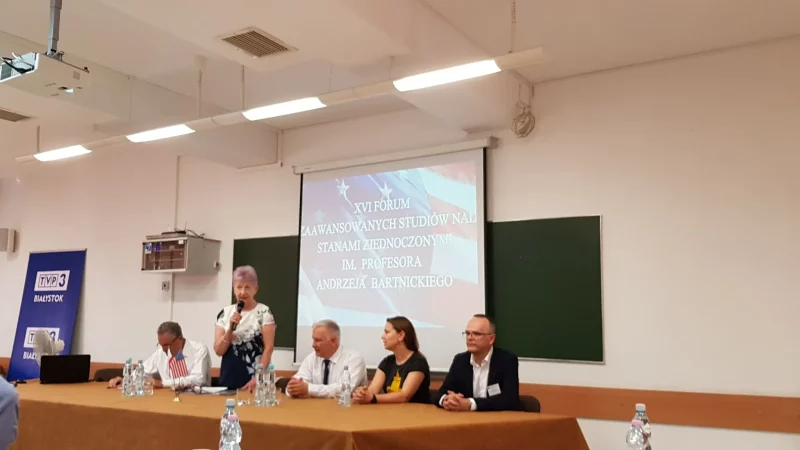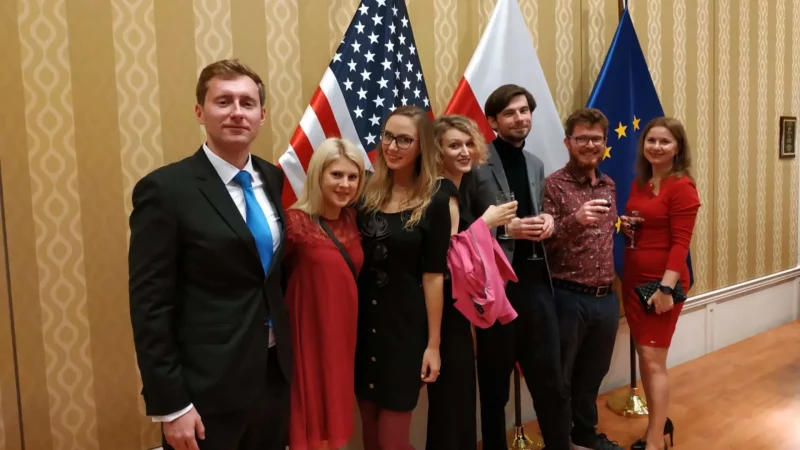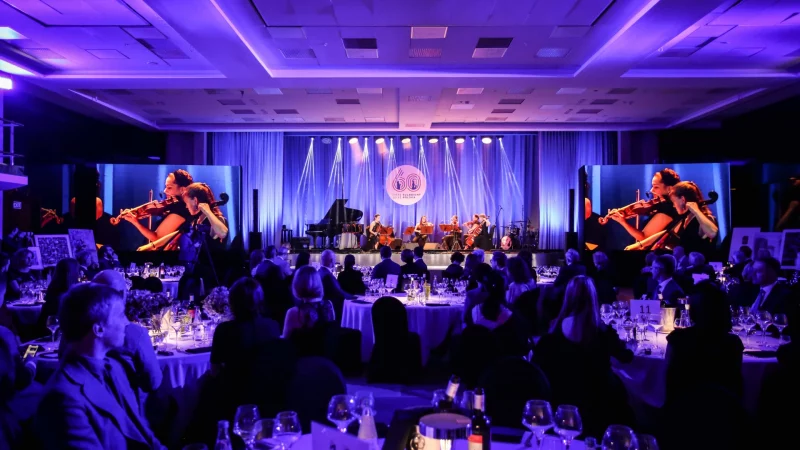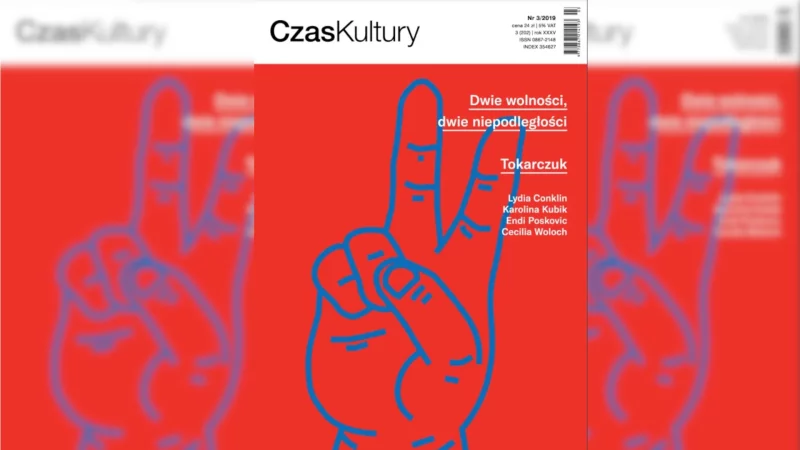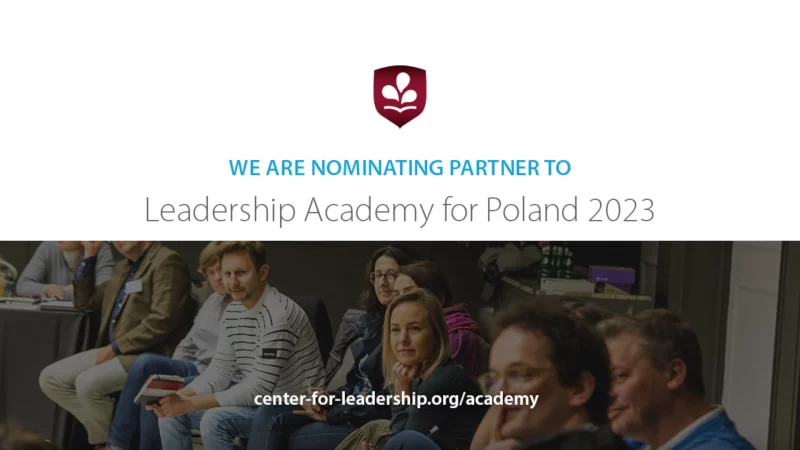The 60th anniversary of the Fulbright Program in Poland played an important role during the XVI American Forum, which took place on June 28-30, 2019 in Bialystok. Taking into consideration how many of our alumni specialize in the studies of the United States, we could not have missed participating in this discussion. The Forum gathered around 50 scholars from the U.S., Canada, Poland and other European countries.
For several years, the Forum has been organized by Prof. Halina Parafianowicz, a renowned historian specializing in Central-European history, as well as Fulbright alumna. The opening remarks also included speeches by Fulbright Board members: Frank Finver, U.S. Embassy Public Affairs Counselor, Prof. Marek Konarzewski, the University of Białystok faculty member and Advisor to the Minister of Foreign Affairs for Science and Technology, and Justyna Janiszewska, Polish-U.S. Fulbright Commission Executive Director.
As part of a larger conversation on the role of exchange programs in public diplomacy, the second day of the Forum included the Fulbright Program roundtable with alumni of the Program from different generations and academic fields:
- Prof. Zbigniew Mazur, Department of English, Maria Curie-Skłodowska University in Lublin
- Prof. William Glass, American Studies Center, University of Warsaw
- Prof. Anna Mazurkiewicz, Department of History, University of Gdańsk
- Prof. Izabela Święcicka, Vice-Provost for Research at the University of Białystok,
- as well as Prof. Halina Parafianowicz, Department of History and Political Science, University of Białystok.
Discussion was moderated by Justyna Janiszewska, Executive Director of the Polish-U.S. Fulbright Commission
Prof. Anna Mazurkiewicz presented the story of Senator Fulbright who persisted in achieving his goals as a student, a university president, and finally as a politician. She reminded us that the initial stage of the Fulbright Program was governed by a desire to familiarize the American people with the world outside of the United States, and thus broaden their perspectives. Only after the Program had been launched, its bilateral role started to take shape and play an equal, if not more important, role.
Prof. Parafianowicz shared her experience with the Program as a breakthrough moment, highlighting how the status of a Fulbright grantee opened the doors for her, and allowed her to get a hold of historical sources that otherwise would have been much harder to access. She is convinced that only because of her Fulbright grant, she was able to meet the granddaughter of Eleanor Roosevelt. The outcome of her grant was a publication of the First Lady’s biography, the first such endeavor in Europe.
Prof. Święcicka highlighted that applying for a Fulbright grant was like jumping into the deep end. As a young scholar she had been promised to be accepted to her dream laboratory provided that she brings her own funds. The entire experience: securing affiliation in the U.S., successfully completing the application process, and finally leaving for the U.S. to conduct research, allowed her to believe in herself and has shaped who she is today: “Without this grant, I would not be where I am now,” she said. Prof. Śwęcicka also pointed out the importance of Fulbright grantees as unofficial ambassadors of their countries and cultures in the United States. As she put it, as a biologist, she has never had any problems infecting others with the love of Polish culture.
Prof. William Glass came to Poland as a Fulbright scholar in 2002-03 to teach at the University of Warsaw’s American Studies Center. He acknowledged that American academics perceive the Fulbright Program as a great chance to conduct research, and that he was positively surprised that it is also possible to receive a grant for teaching purposes. It was not his first stay in Poland, but rather an outcome of his prior good experiences, and his desire to come back to our country. Upon the completion of the Program, he returned to the U.S., but not for long – in fact he has been teaching at the ASC for more than a dozen years now.
Zbigniew Mazur boldly stated that the Fulbright Program has not only ‘contributed’ to the establishing of American Studies in Poland, but it simply established the field by investing in the education and research of generations of Polish Americanists. He recalled prof. Franciszek Lyra, who is the first Polish Fulbright grantee, and who upon the completion of his grant, has started to build the framework for the studies of the U.S. in Poland, including his 20-year-long cooperation with Prof. Mazur’s alma mater in Lublin.
The speakers agreed that during their stay in the U.S., they were met with nothing but kindness and openness, and that the willingness of Americans to lend a helping hand exceeded their expectations. They have also expressed no doubt that an additional value of Fulbright grants is networking: an opportunity to not only meet American academics, but also scholars and specialists from Poland and other countries. It is the result of the Fulbright Commission’s comprehensive efforts to ensure that Fulbright grantees are prepared for departure and meet one another. It is also the result of seminars and topical meetings for Fulbright grantees from around the world organized in the U.S. by IIE (Institute for International Education).
An important message conveyed during the roundtable is that the Fulbright Program is open to scholars from various academic institutions of higher education around Poland, and that the most crucial part is to have the courage, and submit a well-prepared grant application.
To conclude the breath of topics discussed during this roundtable, it is best to highlight prof. Święcicka’s belief that international academic exchanges are absolutely crucial for both professional and personal development of students, scholars and teachers. The University of Białystok is proud of all international grants awarded to their students and faculty members, and it supports their efforts and projects in all possible ways.


